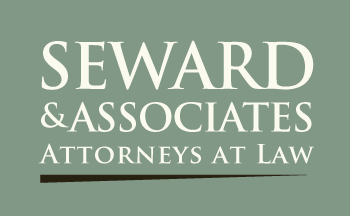As we look closer at Trump’s new Tax Cuts and Jobs Act of 2017 we ask; Are sexual harassment settlement payments tax deductible? Are inventors’ tax rates going up while composers and musicians continue to get a break?
Changes for Corporations – A Summary
Denial of Deduction for Settlements Subject to a Nondisclosure Agreement Paid in Connection with Sexual Harassment or Sexual Abuse – Effective for amounts paid or incurred after the date of the Act’s enactment, no deduction for any settlement, payout, or attorney fees stemming from a sexual harassment or sexual abuse matter if the payments are subject to a nondisclosure agreement of any kind. Interestingly, all payments made prior to 1/1/18 are still tax deductible and going forward, the denial of the deduction only applies to those payments made in connection with a nondisclosure agreement.
Corporate Tax Rate – Effective 1/1/18, a flat 21% tax rate applies to all corporations. This replaces progressive rates from 15% for corporations with revenue up to $50,000, and quickly increasing up to 39% on corporations with taxable income over $100,000.
Alternative Minimum Tax (ATM) – This has been repealed. Is a break only for corporations with over $7.5 million in annual revenues.
Expensing and Depreciation – The maximum amount that can be expensed has increased from $510,000 to $1,000,000. Generally, all tangible business assets are subject to the favorable tax treatment of expensing and/or depreciation. The Act expands the definition of “qualified property
” to include film, television and theatre productions released broadcasted or staged after September 27, 2017.
Real Estate Depreciation – The Act replaces the old 39-year (nonresidential) and 27.5-year (residential) recovery periods with a new 15-year recovery period. This doubles the benefit of the depreciation deduction which should help to boost real estate values.
Net Operating Loss Deduction – The Act eliminates net operating loss carrybacks, except for farming businesses.
Like Kind Exchanges – The Act limits like-kind exchanges to “real property that is not held primarily for sale.” Must have longer-term ownership and investment as the primary objective. An exception is provided for any exchange, “if either the property being exchanged or the property received is exchanged or received on or before December 31, 2017.”
Entertainment Expenses – Under the old law, an employer may deduct up to 50% of expenses relating to meals and entertainment and there were nice tax-free benefits that employers could provide for employees such as housing and meals provided for the convenience of the employer on the business premises of the employer and certain qualified transportation fringe benefits.
Under the Act, these tax-free benefits are restricted and deductions are revised as follows: Employers cannot deduct expenses related to entertainment, amusement, or recreation; membership dues for a club organized for business, pleasure, recreation, or other social purposes; or a facility used in connection with any of the above.
The current 50% limit on the deductibility of business meals is expanded to meals provided through an in-house cafeteria or otherwise on the premises of the employer.
Deductions for employee transportation fringe benefits (e.g., parking and mass transit) are denied, but the exclusion from income for such benefits received by an employee is retained.
No deduction is allowed for transportation expenses that are the equivalent of commuting for employees (e.g., between the employee’s home and the workplace), except as provided for the safety of the employee.
After Dec. 31, 2025, the Act disallows employer deductions for expenses associated with meals provided for the employer’s convenience on, or near, the employer’s business premises through an employer-operated facility that meets certain requirements.
Intellectual Property as a Capital Asset – The Act effective raises tax rates on inventors. They no longer get capital gains 20% tax rate treatment. Beginning in 2018, gain or loss from the sale or exchange of a self-created patent, invention, model or design, or secret formula or process is treated as ordinary income. The election to treat musical compositions and musical works as a capital asset is, however, preserved.
If you have any questions or would like to schedule a free consultation, please contact us at (360) 876-6425 or by email.
We hope these tax tips are helpful.
From Seward & Associates, Attorneys at Law, PC and The Law Offices of Richard D. Seward

